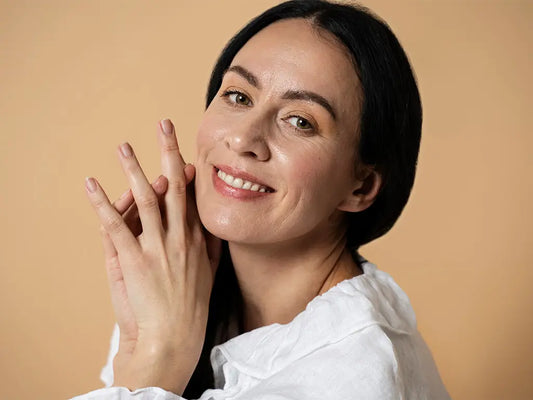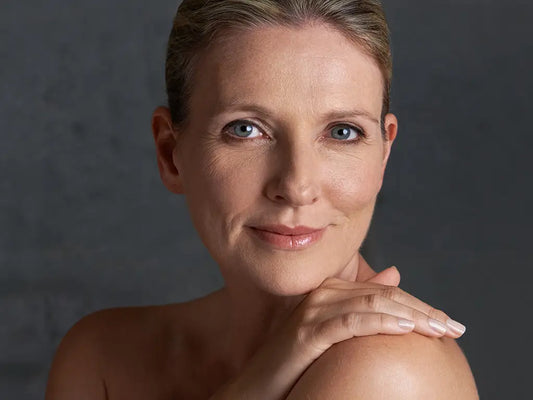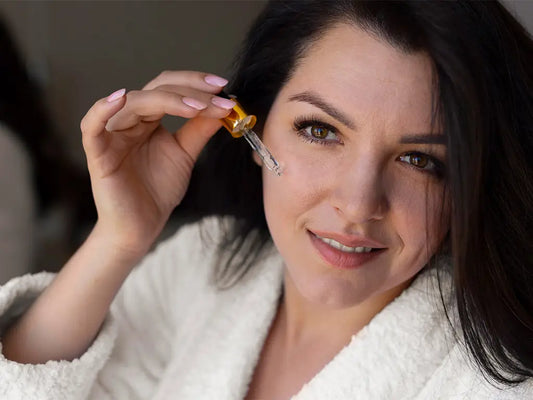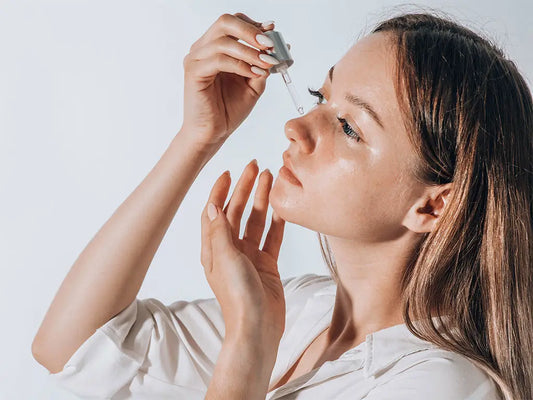What is Mature Skin and How Do You Look After it?

Mature skin is no less beautiful than younger skin. That said, you may not know what it means when you hear or see the word “mature skin”. In this blog, we will provide more insight into mature skin and a few essential points about caring for it so you can have healthy, glowy, gorgeous skin as you age.
What Exactly is Mature Skin?
Your skin is considered mature skin when it starts showing symptoms of aging, such as wrinkles or fine lines. These aging signs most commonly appear in people forty and up, but it is entirely possible that you can see early aging signs as well. When our skin ages, it loses its natural firmness and elasticity. Over time, sebum production in our skin also naturally reduces, leading to common aging symptoms such as age spots, wrinkles, fine lines, and loose skin. So when this occurs, your skin is considered mature.
What Factors Contribute to Mature Skin?
The below points are the main contributors that result in mature skin. When evaluating these key factors, it becomes evident that some are unavoidable.
Sun damage: UV ray exposure is one of the main contributors that cause damage and accelerate aging.
Aging: As you age, your skin will decrease the collagen and elastin it can produce.
Lifestyle: Poor diet, smoking, stress, and other lifestyle factors can all contribute to the development of mature skin.
Read more: What Is Mature Skin? A Complete Guide
How to Look After Mature Skin—Skincare Product Ingredients
When you realize that your skin is developing into mature skin, you will need to provide it with extra-nourishing and repair products to help it combat common issues associated with mature skin. Essentially, your mature skin will need protection and care, and a good skincare routine can provide that.
Below, we have provided three must-haves to incorporate into your skincare routine to look after your mature skin:
Retinol
Retinol stimulates the production of more collagen. This ingredient is found in many mature skincare products on the market. For the best results, we recommend that you choose one with a concentration of at least 0.3-1%. Ideally, you should also use it exclusively at night because retinol makes the skin sensitive to the sun. Retinol also has a fast cell turnover rate, which will help make your skin feel soft and rejuvenated.
Vitamin C
A great antioxidant for mature skin is Vitamin C, which can help restore your skin's glow. When used in skincare products, it can protect the skin from harmful environmental factors and inflammation, and it will help with pigment production to lighten hyperpigmentation and dark spots while evening out skin tone.
Hyaluronic Acid
Mature skin often struggles with dryness, leaving it with a dull complexion. To address this common side effect, skin products containing hyaluronic acid will become your best friend. They are specially formulated to bind water to your skin, which plumps up the skin while keeping it hydrated.
The Wrap-Up on Mature Skin And Caring For it
Having mature skin is an inevitable factor when it is a natural byproduct of aging. You may find this frustrating, but as you now know, there are ways to slow aging by simply using the right products in your skincare routine. But remember, protecting against the sun and changing bad lifestyle habits will also have a positive impact on your skin health.
Read more:




